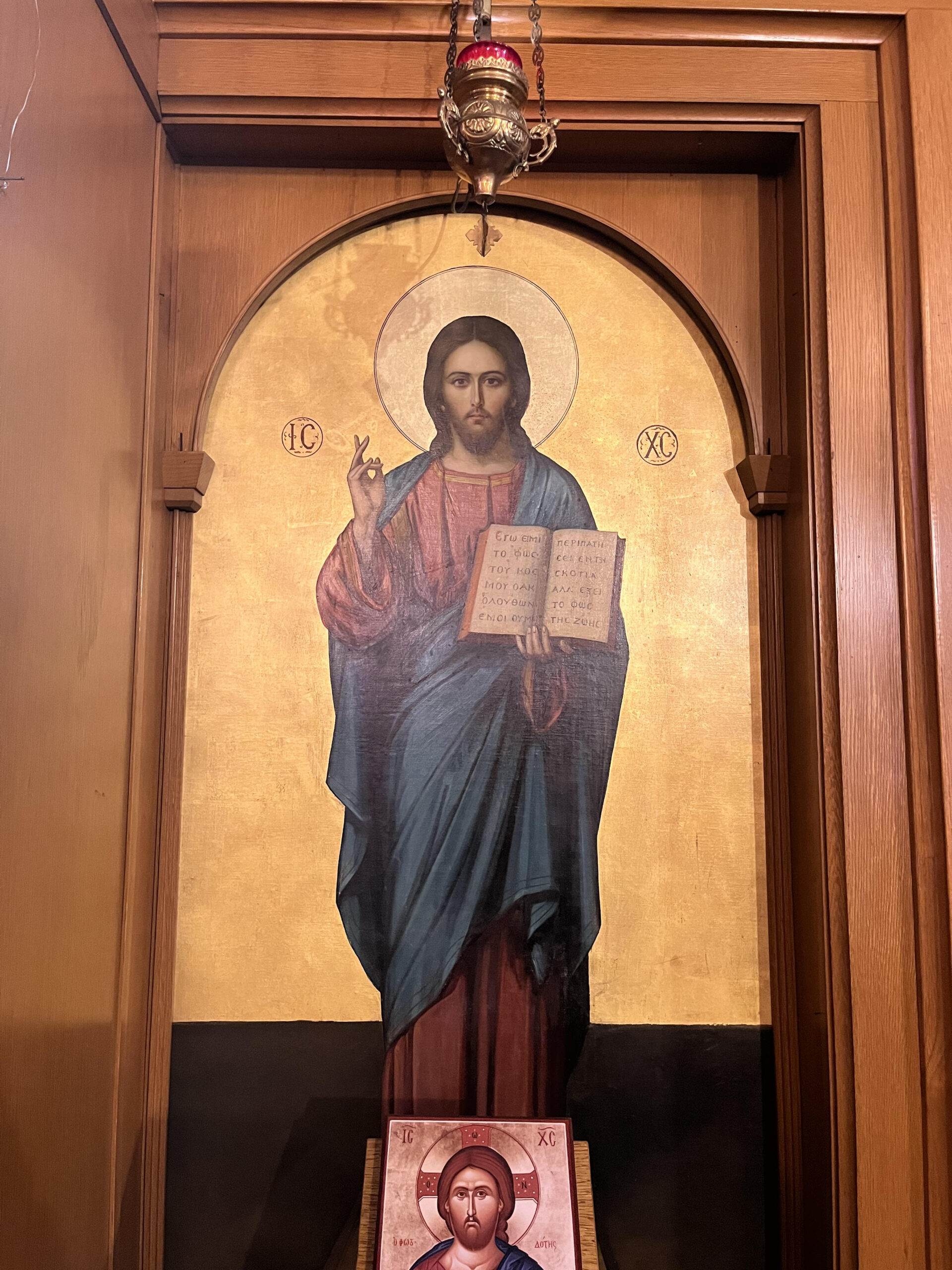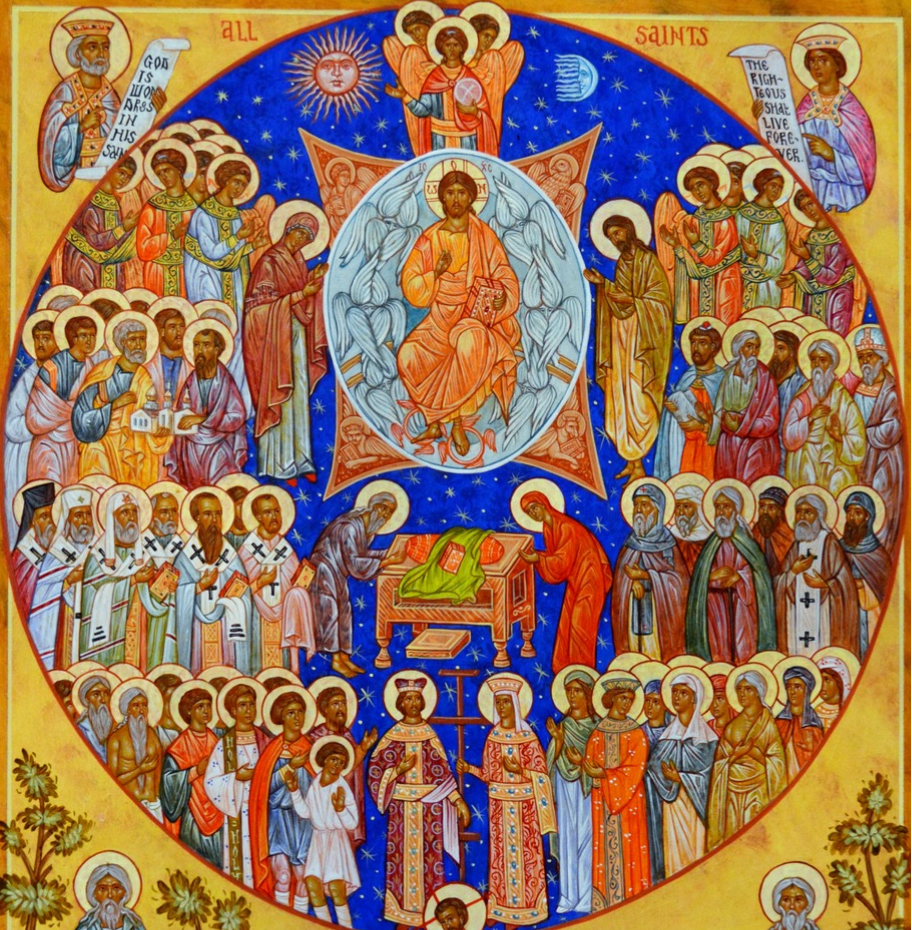And as Jesus passed on from there, two blind men followed him, crying aloud, “Have mercy on us, Son of David.” When he entered the house, the blind men came to him; and Jesus said to them, “Do you believe that I am able to do this?” They said to him, “Yes, Lord.” Then he touched their eyes, saying, “According to your faith be it done to you.” And their eyes were opened. And Jesus sternly charged them, “See that no one knows it.” But they went away and spread his fame through all that district. As they were going away, behold, a dumb demoniac was brought to him. And when the demon had been cast out, the dumb man spoke; and the crowds marveled, saying, “Never was anything like this seen in Israel.” But the Pharisees said, “He casts out demons by the prince of demons.” And Jesus went about all the cities and villages, teaching in their synagogues and preaching the gospel of the kingdom, and healing every disease and every infirmity among the people.
Matthew 9:27-35 (Gospel of the Seventh Sunday of Matthew)
The last sentence of today’s Gospel lesson states in very succinct terms what the work of the church is – teaching, preaching, and healing. Ideally, everything in the church should slot into one of these categories of ministry.
Under teaching, we find things like Sunday school, GOYA (teenage group), Bible study, and retreats, among other things. Under preaching, we find the Sunday sermon or any other time that the Gospel is proclaimed. Evangelism also falls under preaching. Welcoming someone to the church or encouraging someone to get involved or to know Christ. These also fall under preaching. We don’t think of these things as preaching but they are opening the door for the good news to be proclaimed and that’s what preaching is. The majority of ministries fall under the third category, healing. The Divine Liturgy falls under this category. There is a healing quality to worship, especially in receiving the Eucharist. Confession is a healing ministry. So is counseling, and hospital visits. Offer a prayer for someone is a healing ministry. So is serving food to the homeless.
Teaching, preaching, and healing comprise the central work of the church. However, these things are not just the work of the priest. Everyone has a role in all three. How is that?
Where do people get the foundation of their Christianity? It’s not in Sunday school and it’s not in the Divine Liturgy. It is at home. Parents are the greatest single determinant of the foundation of faith that a child has. So anyone who is a parent becomes their child’s primary teacher when it comes to the faith. Teaching is not only done through overt instruction. Teaching is done by example. When a child sees his parent praying or reading the Bible or offering forgiveness to his or her spouse, a child is learning how to pray, the importance of reading scripture, and the need to forgive. If a parent doesn’t do these things, a child cannot learn about them in a short Sunday School lesson or a sermon.
If “every good and perfect gift is from Above, coming down from the Father of Lights,” (James 1:17), then every positive gesture has the potential to bring one closer to God. Preaching opens the door for someone to know God more deeply. Encouragement, which I wrote about yesterday, is actually a form of preaching. Encouragement is a positive thing, a good thing, and every good thing has the potential to lead us to God. Encouragers, whether they think so or not, are actually preachers. They encourage the good and the good leads to God. Discouragers not only dishearten the people they discourage, but have the potential to lead people away from good, and thus lead people away from God. Preaching through encouragement, through welcoming people to the church, and through inspiring others to grow in their faith, is something we can all do.
The healing ministry of the church is perhaps the broadest and widest ranging ministry of the church. Worship is a healing ministry. And so gathering to worship is something important that we can all do. Healing, for the most part, however, does not occur in super large groups like the congregation on Sundays. The greatest healing, I believe, occurs when two or three are gathered in His name, for as we read in Matthew 18:20, “where two or three are gathered in my name, there I am also in the midst of them.” The healing ministry includes visiting the sick, something we are all told to do in Matthew 25:31-46. It includes being a shoulder for someone to cry on, or being a sympathetic ear.
We get opportunities to teach, preach and heal on a daily basis when we think about it. These things are not limited to our priests or to our Sunday mornings. Imagine how different the church and the world could be if we all worked on aspects of all three every day. Today’s Gospel lesson seems very hum-drum. Another blind man healed, another demon cast out. These were Jesus’ opportunities to heal on this specific day. The Gospel lesson concludes with a reminder that healing is supposed to be part of our everyday lives.
One more note on the blind man and the demoniac. We encounter both on a daily basis. We encounter people who can’t see God because they don’t know Him, or who can’t see something positive. We encounter people possessed by sadness. It is up to us to bring sight to the spiritually blind and to encourage those possessed by sadness to find joy. These are opportunities for healing that we will find on a daily basis if we are looking.
Preaching. Teaching. Healing. The work of the church. The work for all of us who belong to the church. Opportunities that present themselves to us on a daily basis.
The sepulcher had been opened, and Hades was lamenting, and Mary cried out to the Apostles in hiding, “Come out, O laborers of the vineyard, and preach the message of the Resurrection. The Lord has arisen and granted the world His great mercy.” (First Kathismata, Sunday Orthros, Tone Plagal Second, Trans. by Fr. Seraphim Dedes)
Look for opportunities to preach, teach and heal today!

